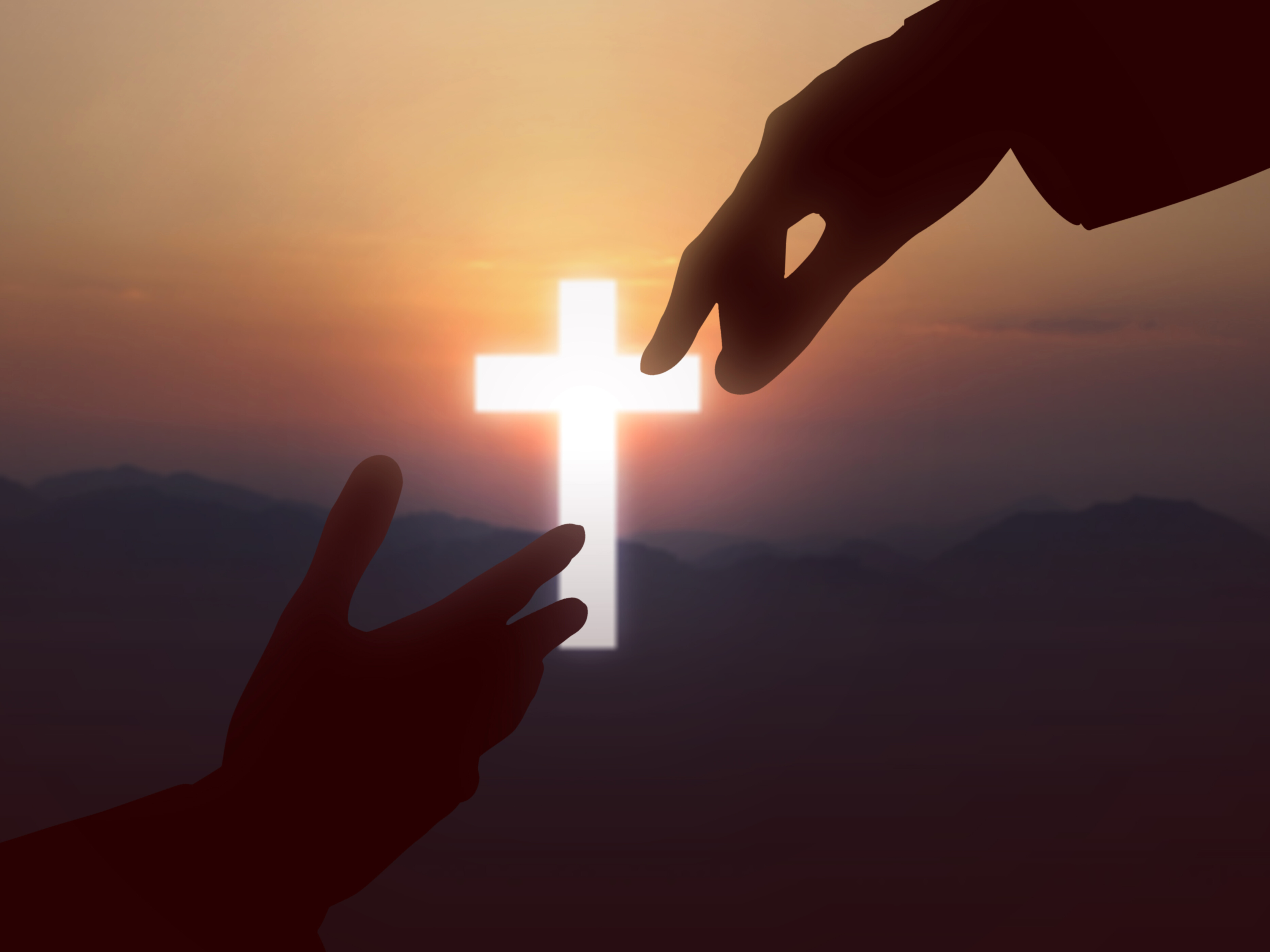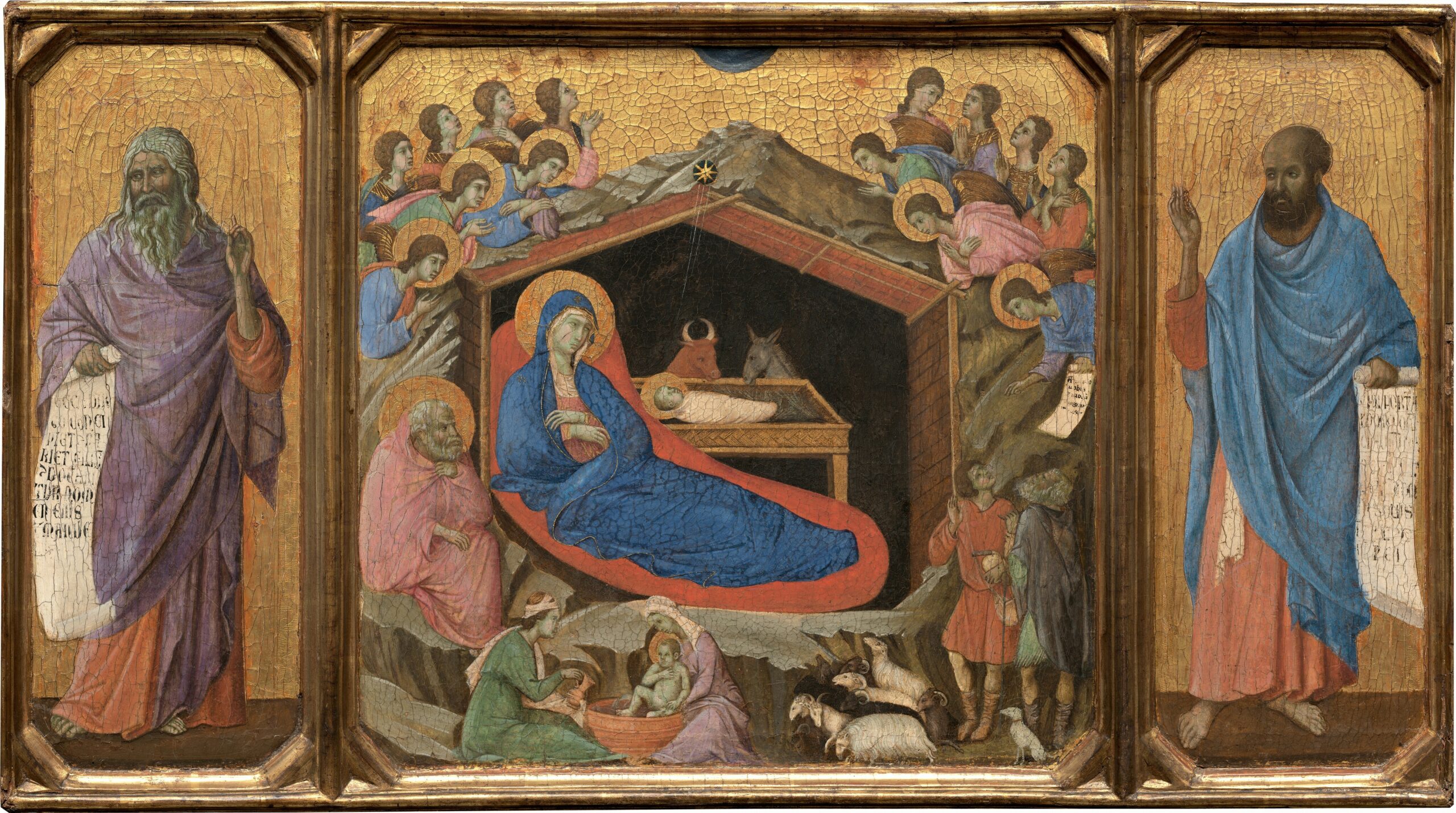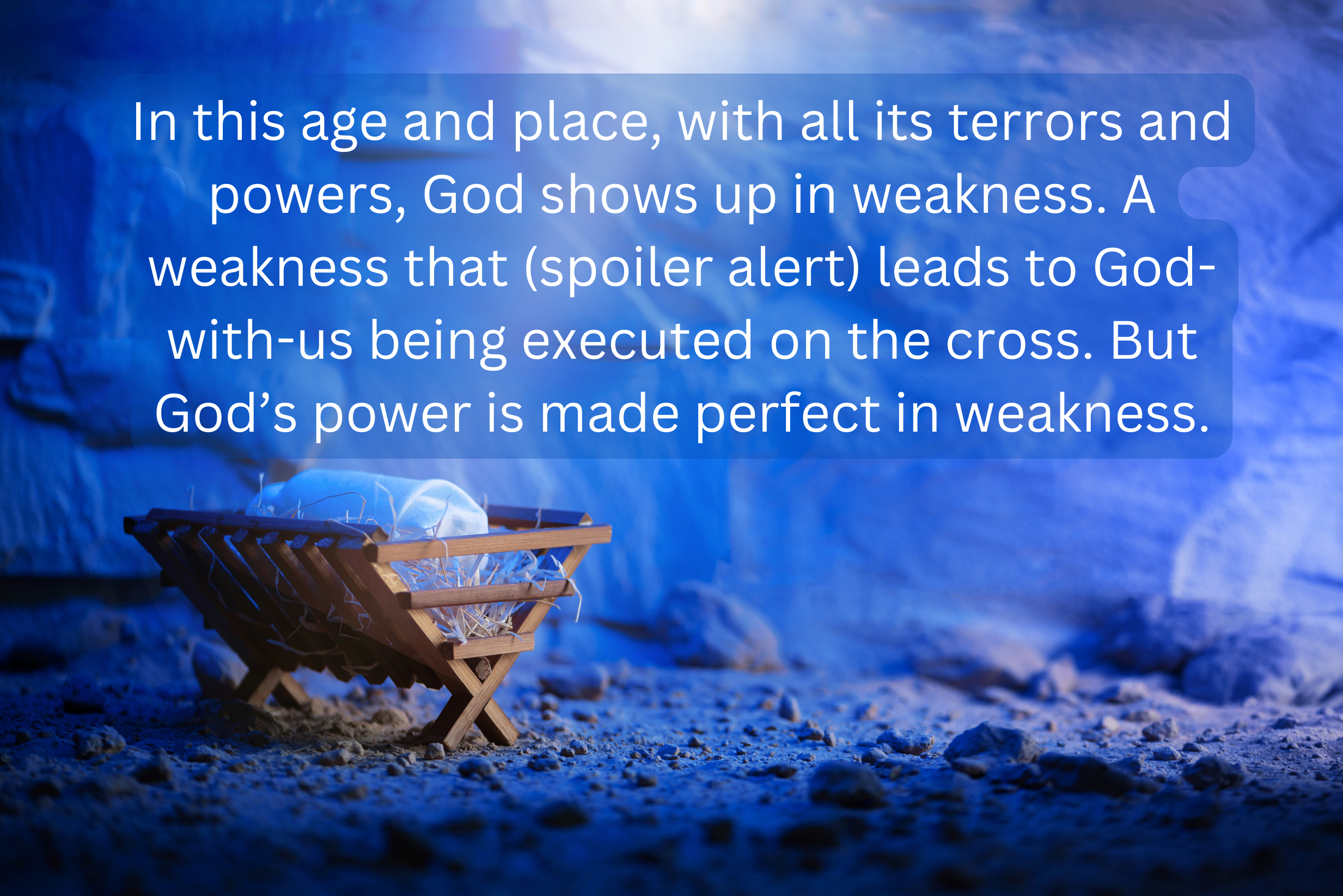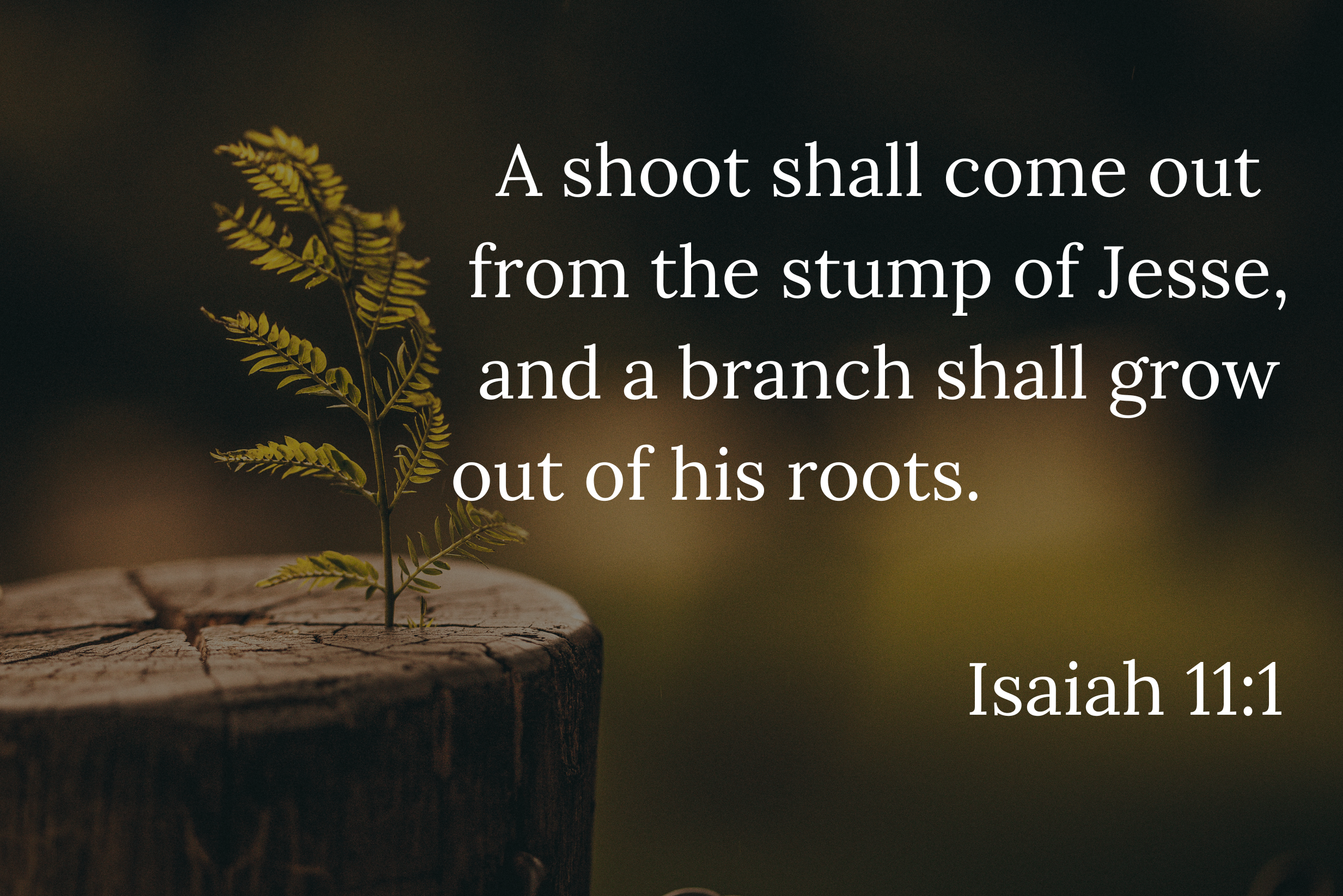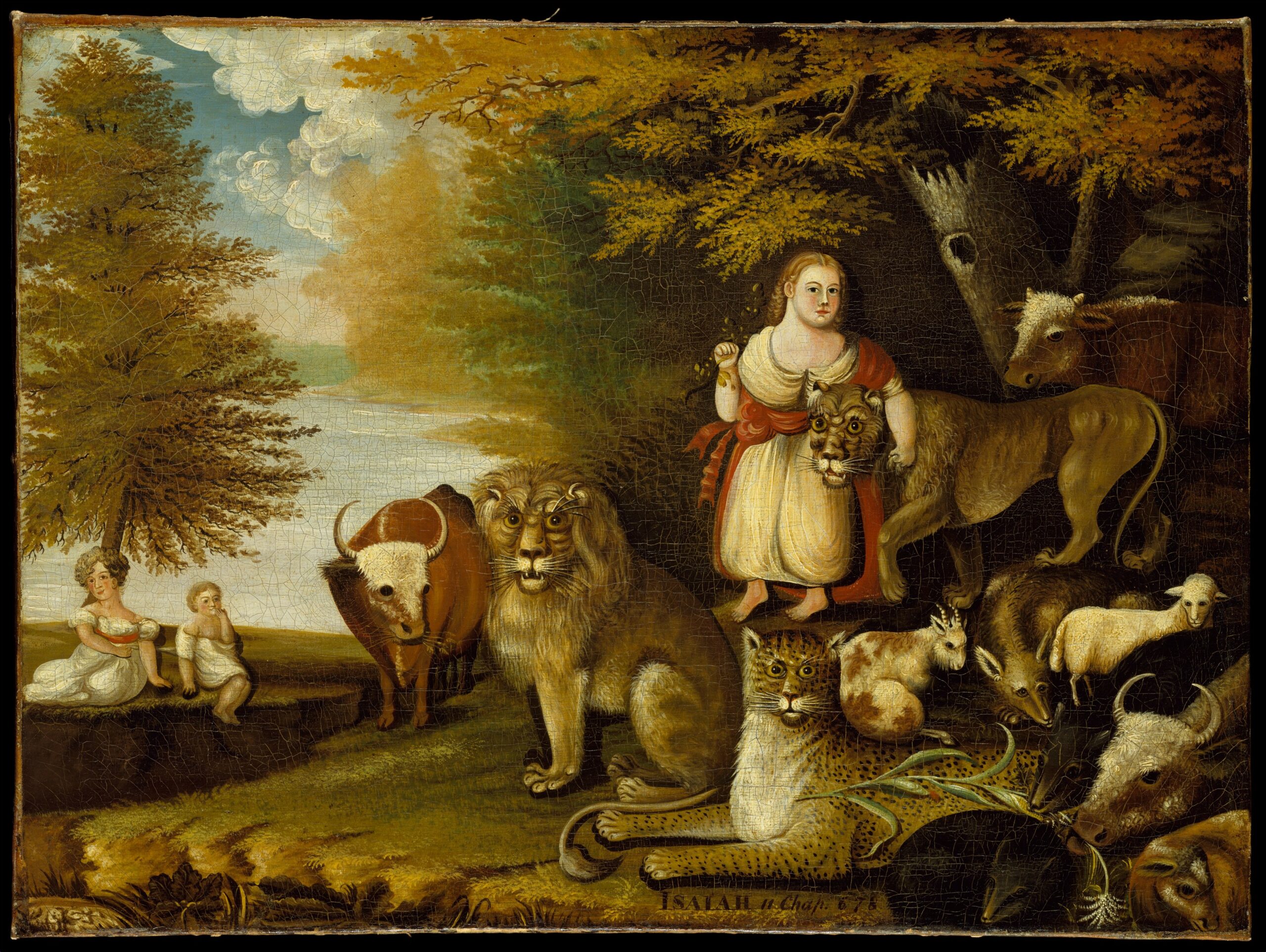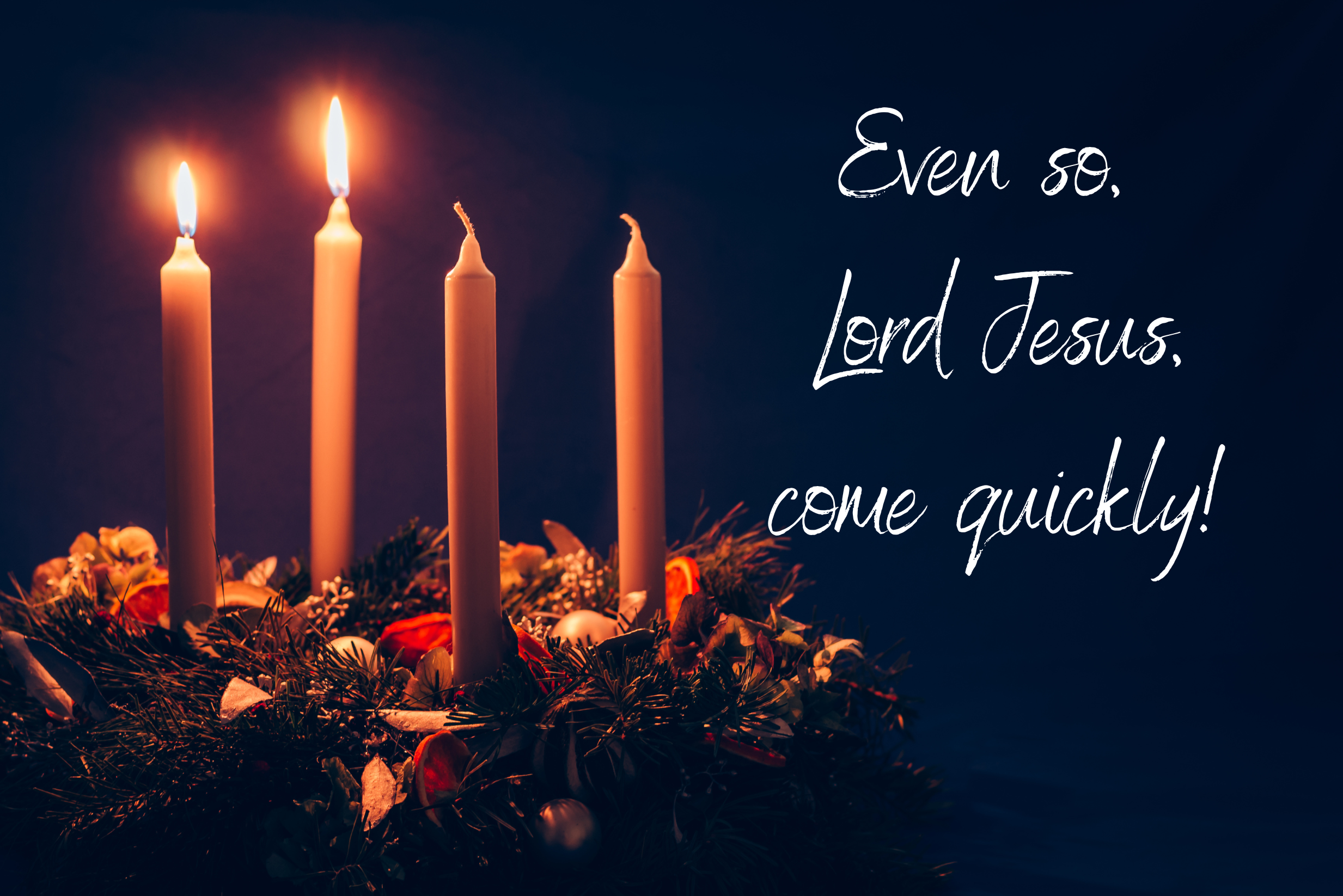The Net Made Flesh (A Not-To-Miss Rerun)
Co-missioners,
The folks who get Thursday Theology on its way to you these days spent much of last week at our 2023 Crossings conference. The days were full and ever so rich. When they were done some decompression time was of the essence. That’s why you didn’t get a post from us last Thursday.
It’s also one reason—a distinctly lesser reason—for us to be sending you a rerun today. The greater reason is the rerun itself. What you’re getting is the sermon Fred Niedner preached at the first-ever Crossings conference in 2007. Ed Schroeder sent it out two days later as his Thursday Theology post for February 1st of that year.
Some of you will not have seen this when it first ran. Others will have forgotten what they read those fourteen years ago. A few, perhaps, will recall some scraps of it—a compelling image or two; a phrase so deftly turned that it stuck and wouldn’t fade; a shiver of insight you couldn’t forget. Fred has a gift for provoking these shivers as he delivers the Gospel and shows why we need it.
The title of the conference in 2007 was “Honest-to-God Gospel.” Fred came through with precisely that at the conference Eucharist. He told it as it is, both with the misbelieving sinners he was looking at and with the God whose promise gripped them even as he spoke. This year’s conference was entitled “The Promising Community.” You’ll discover when you read how this too is underscored by what Fred said back then. “The net made flesh.” That’s you. It’s us. Us-in-Christ to be precise.
Anyway, do read. You’ll be refreshed. Savor the shivers when they happen.
Peace and Joy,
The Crossings Community
__________________________________________________________________
The Net Made Flesh
by Frederick Niedner
The Sermon at the Eucharist
First Crossings Conference
January 30, 2007
+ + +
Luke 5:1-11
Once while Jesus was standing beside the lake of Gennesaret, and the crowd was pressing in on him to hear the word of God, he saw two boats there at the shore of the lake; the fishermen had gone out of them and were washing their nets. He got into one of the boats, the one belonging to Simon, and asked him to put out a little way from the shore. Then he sat down and taught the crowds from the boat. When he had finished speaking, he said to Simon, “Put out into the deep water and let down your nets for a catch.” Simon answered, “Master, we have worked all night long but have caught nothing. Yet if you say so, I will let down the nets.” When they had done this, they caught so many fish that their nets were beginning to break. So they signaled their partners in the other boat to come and help them. And they came and filled both boats, so that they began to sink. But when Simon Peter saw it, he fell down at Jesus’ knees, saying, “Go away from me, Lord, for I am a sinful man!” 9 For he and all who were with him were amazed at the catch of fish that they had taken; and so also were James and John, sons of Zebedee, who were partners with Simon. Then Jesus said to Simon, “Do not be afraid; from now on you will be catching people.” When they had brought their boats to shore, they left everything and followed him.
1 Corinthians 15:1-11
Now I would remind you, brothers and sisters, of the good news that I proclaimed to you, which you in turn received, in which also you stand, 2 through which also you are being saved, if you hold firmly to the message that I proclaimed to you– unless you have come to believe in vain. 3 For I handed on to you as of first importance what I in turn had received: that Christ died for our sins in accordance with the scriptures, 4 and that he was buried, and that he was raised on the third day in accordance with the scriptures, 5 and that he appeared to Cephas, then to the twelve. 6 Then he appeared to more than five hundred brothers and sisters at one time, most of whom are still alive, though some have died. 7 Then he appeared to James, then to all the apostles. 8 Last of all, as to one untimely born, he appeared also to me. 9 For I am the least of the apostles, unfit to be called an apostle, because I persecuted the church of God. 10 But by the grace of God I am what I am, and his grace toward me has not been in vain. On the contrary, I worked harder than any of them– though it was not I, but the grace of God that is with me. 11 Whether then it was I or they, so we proclaim and so you have come to believe.
Isaiah 6:1-8
In the year that King Uzziah died, I saw the Lord sitting on a throne, high and lofty; and the hem of his robe filled the temple. Seraphs were in attendance above him; each had six wings: with two they covered their faces, and with two they covered their feet, and with two they flew. And one called to another and said:
“Holy, holy, holy is the LORD of hosts; the whole earth is full of his glory.”
The pivots on the thresholds shook at the voices of those who called, and the house filled with smoke. And I said: “Woe is me! I am lost, for I am a man of unclean lips, and I live among a people of unclean lips; yet my eyes have seen the King, the LORD of hosts!”
Then one of the seraphs flew to me, holding a live coal that had been taken from the altar with a pair of tongs. The seraph touched my mouth with it and said: “Now that this has touched your lips, your guilt has departed and your sin is blotted out.” Then I heard the voice of the Lord saying, “Whom shall I send, and who will go for us?” And I said, “Here am I; send me!”
+ + +
When I first learned the stories that we have as texts this evening, I thought the characters who demur, as I’ve now learned to name their reactions, were merely being polite, mid-western-Lutheran polite, perhaps, like Garrison Keillor’s aunt Myrtle, who, when complimented for her blueberry pie that won first prize at the State Fair, can only say, “Well, it’s not too bad; a little dry perhaps.” Isaiah and Peter, I thought, put up an expected moment of resistance when tabbed for a place on God’s varsity roster, claiming “unclean lips” and the “sinful man syndrome” respectively. But they couldn’t be serious. Oh yes, I knew Peter had eventually done that “I-don’t-know-the-man” thing, but he wasn’t so bad as Judas. And while I didn’t yet know that Isaiah had spent three years going about naked and barefoot, as a sign against Egypt and Ethiopia (Is. 20:1-5), I don’t think that would have phased me. Isaiah, after all, had the longest book in the Bible! And Peter was the Rock.
It all smacked of the curious charade we performed in the liturgy each Sunday of my childhood. Every week we said in church, “I a poor, miserable sinner confess unto thee all my sins and iniquities by which I have ever offended thee and justly deserved thy eternal punishment . . and I am by nature sinful and unclean. . .” I assumed the adults in my church only said that because it was good form, and even more so that we children were sure to say it also. We were the sinners. They were adults, after all, and what sins did adults ever commit? What trouble did they ever get into? They were too old for the stuff that got me scolded, spanked, sent to my room, and later grounded. Only children ever sinned and got punished for it.
It took a while to learn the deep truth of Isaiah’s protest and Peter’s demur, but learn it I have. I will tell you one of the moments when part of it dawned on me. Like 200 or so others among my generation of future pastors of the Lutheran church who went through the legendary, famous, or infamous LC-MS “system,” which included a couple years of college in Ft. Wayne, I spent several summers driving trucks for North American Van Lines. At world headquarters in Ft. Wayne, North American trained us for a week, mostly in completing the paperwork, and then turned us loose on the world in semis. To my knowledge we all survived. The same is not true of all our trucks, or the customers’ furniture.
Temptations abounded in that world. I could write a book, or a seminarian’s rendition of “I’ve Been Everywhere.” But I resisted—the temptations I recognized, that is—mostly from fear. One day I got my truck’s oil changed in Omaha, Nebraska, on my way from Calais, Maine, to Oxnard, California. In case you’re interested, it takes nearly 50 quarts of oil to fill the crankcase of a Cummins 250 diesel engine. Later, as pulled into the weigh-station about 40 miles west of Omaha on I-80, my oil pressure warning buzzer went off. What in the world? I shut the engine off and stepped out of the truck. Immediately I could see and smell the trouble. The entire front end of my trailer was covered with fresh, golden motor oil—about 50 quarts worth, the way it looked. The weigh station personnel let me use a phone to summon a truck mechanic from a nearby town, and while that quiet, middle-aged fellow put 50 more quarts of oil into the engine, I fumed about the idiot mechanic back in Omaha who had pinched a gasket on one of the oil filters, thereby causing all this inconvenience and trouble. As my rant wound down, the mechanic who’d listened as he worked finally said calmly, “Well, once there was a perfect man who walked the earth. But that was a long time ago, and he’s gone.” He turned from the engine to look at me, and said, “Now there’s only us.”
It wasn’t smoking, blistering seraphim like Isaiah encountered, or a lakeshore lesson from an amateur who taught the pros how to fish, but it was an epiphany of sorts. I was speechless. I’d gotten nailed. I’d spent a year as a seminarian by the time of that roadside conversation, and this other man was using the lines I should have known. I was the theologian in training. Since that day, I have always known that in every crowd, however small, there is likely someone a whole lot saner, wiser, and with a better grip on theology than me. And, I was a sinful man. My most shameful act had been exposed. I always knew better than anyone else, or thought I did. I was quick to blame whenever something went wrong, and I offered little margin for error.
I headed for California that afternoon a humbled man, and I would love to tell you that I was also a changed man, a permanently chastened man. But alas, I still think, talk, and often act as though I know better than anyone else—not just students, but presidents, bishops, colleagues, and mostly consistently my family members. This has cost me dearly, pretty much all my life. Oh, how I love to be right. And it’s only the beginning of my sins, a mere smudge on the dipstick, so to speak. The rest would be another big, sorry book.
God, or Christ the Amateur Fisherman, is nuts to recruit me, even for the Freshman team, much less the varsity mission. “Get away from me Lord, for I am a sinful man,” I, too, cry out. And even when that’s most sincere, not merely mid-western politeness, think of how audacious and idolatrous it is to talk like that. Who am I to say whom God can and can’t use? I know better than God who should be a prophet, a priest, a net-hauler? I can’t even do this demur thing righteously.
I am a poor, sinful being. And yet, here I am. Here we all are. How did you get here?
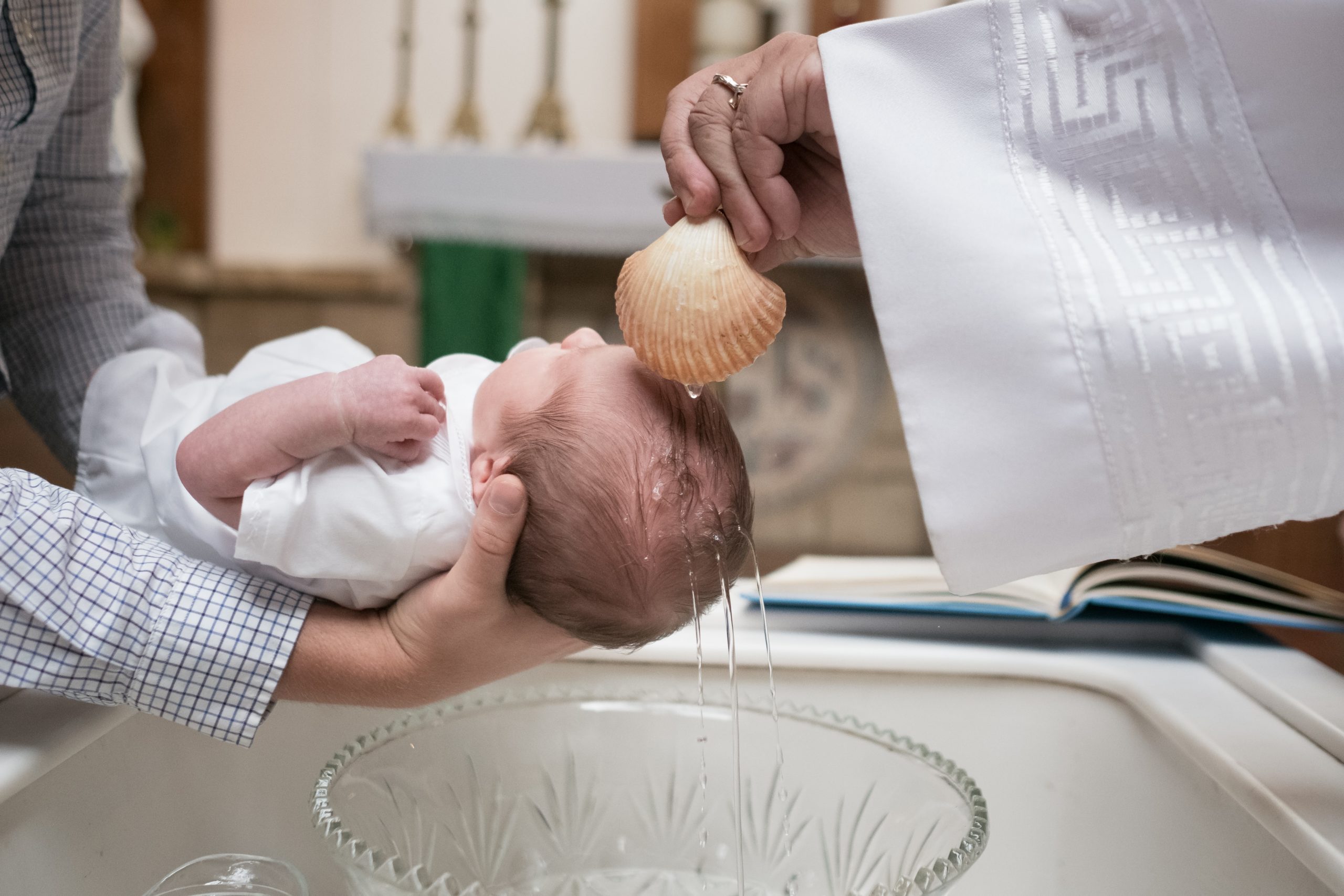
Photo by Josh Applegate on Unsplash
As I confessed to some of you in sessions earlier today, I used to think I was here, or in the best place possible, because I was right about doctrine, and others were off in lesser places where they believed in faulty doctrines. I knew it wasn’t all on my own. I was right in the way that Paul was right when he duked it out with the Galatians, because we both had God and Jesus on our side. But it wasn’t a net of rightness that hauled me in here to be part of this collection of God’s saints. The net that caught me was the only one Christ has ever used in his fishing expedition, “catching people.” How many disciples did Jesus win by his words, his parables, or even his miracles? A tiny handful, really, and they all ran away at the end of the story. So what is it that has brought us to be here today, a part of the vast throng that’s been caught in the net that God hauls through this world?
It’s his crucifixion—the sacrifice of his life as his way of loving us to death. That’s what has us here. That’s what we’re baptized into as God’s people. I’m not found or saved or whole because I believe Jesus was right about the lilies of the field being adorned more beautifully than Solomon in his splendor, or about God having the hairs of our head numbered, or even that he was right about a lot more important things. I’m not even saved because I have Nicaea and Chalcedon figured out and kept straight.
I’m baptized into Christ’s death. Out there on the Interstate that day, when I got nailed, in that moment I landed in the company of the nailed, and the Nailed One, the Christ. That’s how I came into Christ’s company.
I had e-mail recently from a young student doing research for a religion paper at some other college—an occupational hazard these days, thanks to “the web.” He wanted to know what verses in Paul’s letters had “brought me to Christ.” I had to write back saying that I cherished many of Paul’s words, and I find that some have given me direction over the years. But a 23-year-old woman and her 25-year-old husband brought me to Christ. They’d been married barely a year when they had me, and loved me more than anything in the world. I’m convinced now that either one of them would have given life itself for me if necessary. They brought me to the safest place they knew—the arms of this community, through baptism in a tiny Wyoming church with a font like that one here in the rear of this sanctuary.
I’m not sure any more how wise people are at 23 and 25. Those folks seem like children to me now. But they somehow sensed that sooner or later I’d get nailed, crucified, or at least drowned in my own stuff. So they took me to get crucified with Christ, in the waters of baptism, so that when my time came, at least I wouldn’t have to die alone.
I didn’t quite understand it at the time, but as I got nailed that day, crucified with Christ, I also got cruciformed, cross-shaped, and strung together with a whole lot of other nailed, cross-shaped, cruciformed lives, a bunch like those in the funny scene at the end of Luke’s gospel—crucified folks talking to each other about their future plans. “Hey Jesus, you with the “king” sign over your head! Remember me, like Joseph remembered the baker—or was it the butler?—when he got out of prison and rose to power!” Jesus says, “Sure, friend. You and me.” How odd it looked to the bystanders and soldiers. Crucified folks making plans!?!
But that’s us—strung together now as the net. Did you ever notice that a net is just a bunch of crosses strung tightly together? That’s what we see on Golgatha in Luke 23—the beginning of the net. It’s this net that God hauls through the world, and especially through the same part of the sea as on that day back in Galilee. Mostly God’s catch comes from the depths, so that’s where God hauls us, with us holding tightly to one another. “Out of the depths” calls every psalmist, sooner or later, the practiced ones and the unpracticed. So that’s where God’s net must go. God drags us through the deep, over and over.
Dear friends, we don’t mend, tend, or haul the net; rather, by God’s grace we become the net. God does the mending, the daily washing, and the morning-by-morning encouragement and direction of would-be catchers who have fished all night and come home empty. Oh, we’re part of all that mending. It happens here, in this community, when we work at forgiveness of sins, confession and absolution, practicing the truth of our baptismal covenant, taking into ourselves the body and blood of Christ—the meal that makes us his own nail-marked body and nourishes us for his tireless work in this world. Mostly, though, we are the net. Christ’s net.
Yes, once there walked among us a perfect man who was right about everything. But he gave that up. And now, marked with the sign of his cross, there’s just us. And we keep on hauling, and being hauled, over and over, through the deep.
Thursday Theology: that the benefits of Christ be put to use
A publication of the Crossings Community
